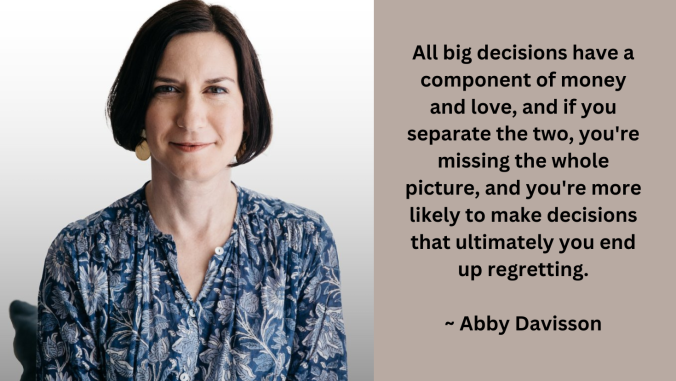The real friction between human resources and CSR
<p>It's not that HR professionals don't care about sustainability -- it's that they think they're already doing the work.</p>

Elaine Cohen, author of CSR For HR, has a soapbox.
She believes strongly that the human resources (HR) function should play a stronger role in sustainability, perhaps even own it. Her argument, however, isn't as widely accepted as she would prefer because most HR professionals believe they already do perform most of the activities she describes as "sustainability activities."
For example, employee wellbeing, implementing diversity recruitment strategies, and volunteering programs are often part of the HR department's role. So, how is sustainability any different?
I Don't Believe It!
Almost a decade ago, Simon Zadek and John Weiser published Conversations with Disbelievers and Ongoing Conversations with Disbelievers. Essentially, they analyzed a vast majority of executives' reluctance to make CSR and sustainability a priority.
Today, embracing the triple bottom line has gained momentum -- and some might even say, gone mainstream, with most businesses considering CSR an important part of business strategy. However, inside the HR function, conversations with disbelievers continue to take place.
What's the Problem?
 Because HR concepts are so integral to the definition and end goals of CSR, it is hard for me to understand the level of resistance offered by HR professionals. From Cohen's perspective, however, it is exactly these similarities that create the problem.
Because HR concepts are so integral to the definition and end goals of CSR, it is hard for me to understand the level of resistance offered by HR professionals. From Cohen's perspective, however, it is exactly these similarities that create the problem.
For most of Cohen's HR colleagues, often the first sentence is that "we're already doing that!" They feel that they sufficiently meet most, if not all, the duties Cohen categorizes as CSR or sustainability. Diversity: Check, Employee wellbeing: Check. Employee engagement: Check. However, Cohen maintains that sustainable Human Resources Management is not just a series of tasks; it is the consistent creation of a sustainable culture in the organization and realignment of all HR Practices in a more fundamental way.
No Pressure From Above
The problem, once you dig deeper, isn't just within the HR department; it's in the leadership suites as well. Most executives don't perceive HR as a key part of sustainability. Quite frankly, most HR departments continue to struggle with their role in strategy and bottom line contribution. Therefore, HR isn't pressured to be part of CSR initiatives; HR leaders lack incentive and don't see it as their responsibility.
Often, their default argument becomes an overcrowding of responsibilities or that their priority is talent acquisition, retention, and development. Many assume they would not get recognition from their superiors for a CSR-based approach to HR.
As a recruiter who has observed this space for more than a decade, most of this opposition to CSR comes down to a siloed thinking that has unfortunately continued to plague corporate corridors and management education curriculum.
Sustainability is Everyone's Job
HR professionals see sustainability in a silo.
CSR, like HR, needs to be overarching. It should be part of every department, a core part of the business, a cultural emphasis, and a strategic priority integrated with every functional goal. But that's not realistic in today's repressed economy and financially-oriented market.
Some businesses see HR as an internal service provider only, rather than a true partner to the business functions. Corporate social responsibility doesn't work unless it is integrated and embodied by every employee and manager. Empty implementation of CSR initiatives without an integrated effort becomes exactly that: Empty.
Adine Mees and Jamie Bunham from the Canadian Business for Social Responsibility (CBSR), succinctly coined the phrase: "CSR minus HR equals PR." Or, that unless CSR is implemented across a company, it remains an external façade used only to gain points with a business' immediate consumer base.
How it Works: Pepsi and PricewaterhouseCoopers
Several industry leaders that have jumped on integrating sustainability into all aspects of their business mention the connection between employees and CSR initiatives.
For example, PepsiCo's purpose statement "Performance with Purpose" includes a commitment to "Talent Sustainability"-- supporting the professional development of their employees to drive corporate performance.
Cynthia Trudell, PepsiCo's Chief Personnel Officer said in a Vault interview with CSR journalist Aman Singh that the Performance with Purpose campaign was one of their strongest recruitment tools, bringing in employees from all levels.
PricewaterhouseCooper's Corporate Responsibility Leader Shannon Schuyler was formerly a recruiter. In another Vault article, she explains the importance of human resources in sustainability efforts, saying, "It has become even more important to ensure that responsibility is at the forefront of not just what company leadership is saying, but also what every single employee believes."
Schuyler also mentioned that PwC works with colleges "to figure out how to embed CR in the accounting and general business curricula, so that students truly understand that it's going to be a part of their job, no matter where they go," reflecting that businesses are trying to integrate CSR into all job descriptions.
Though sustainability is comparably widespread, the Human Resources tie-in is still playing catch-up.
HR must go beyond keeping employees content with the present. Corporate social human resources is the critical key to satisfaction, performance, retention and long term business reputation and sustainability.
HR sign via Shutterstock.





